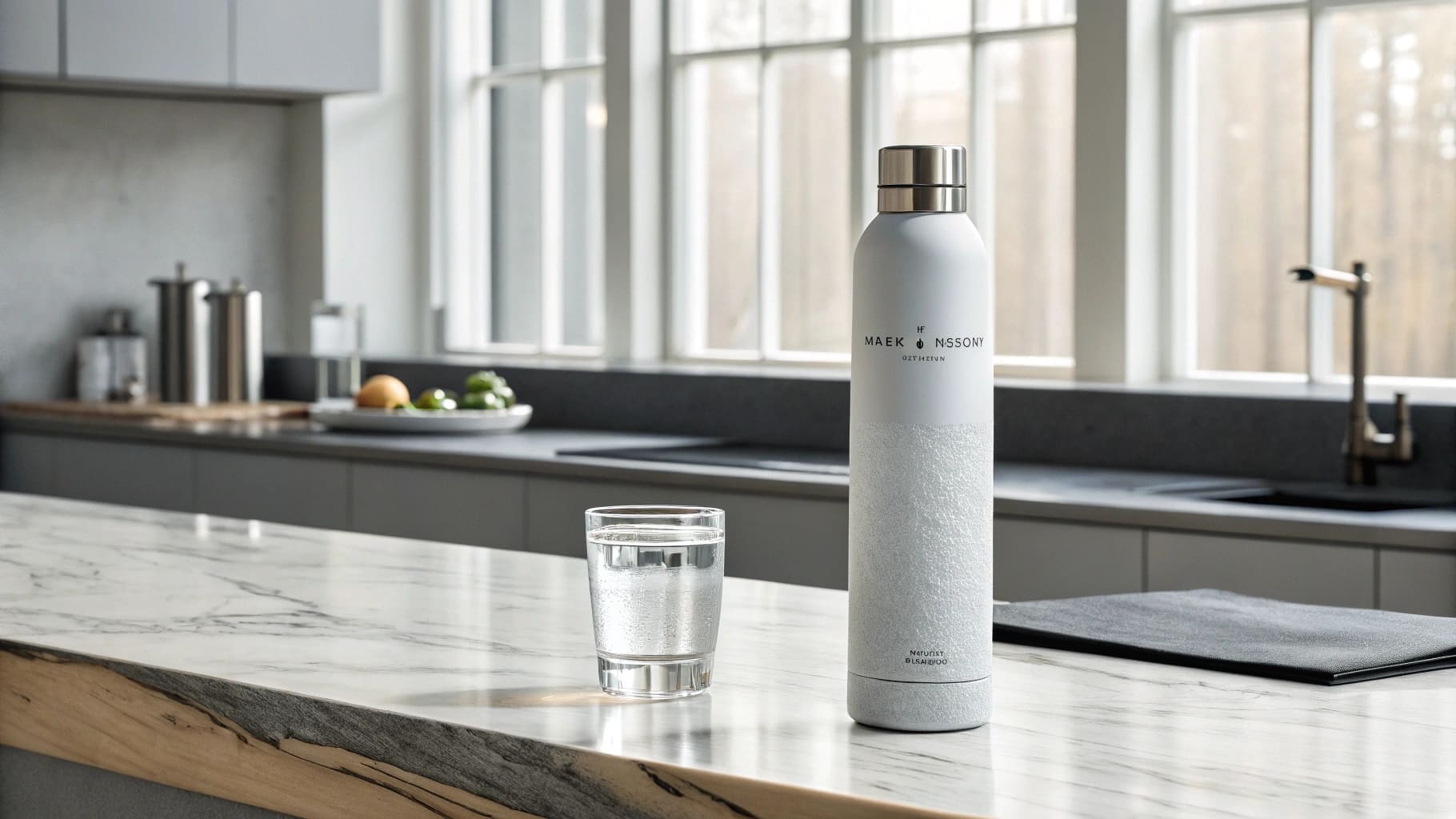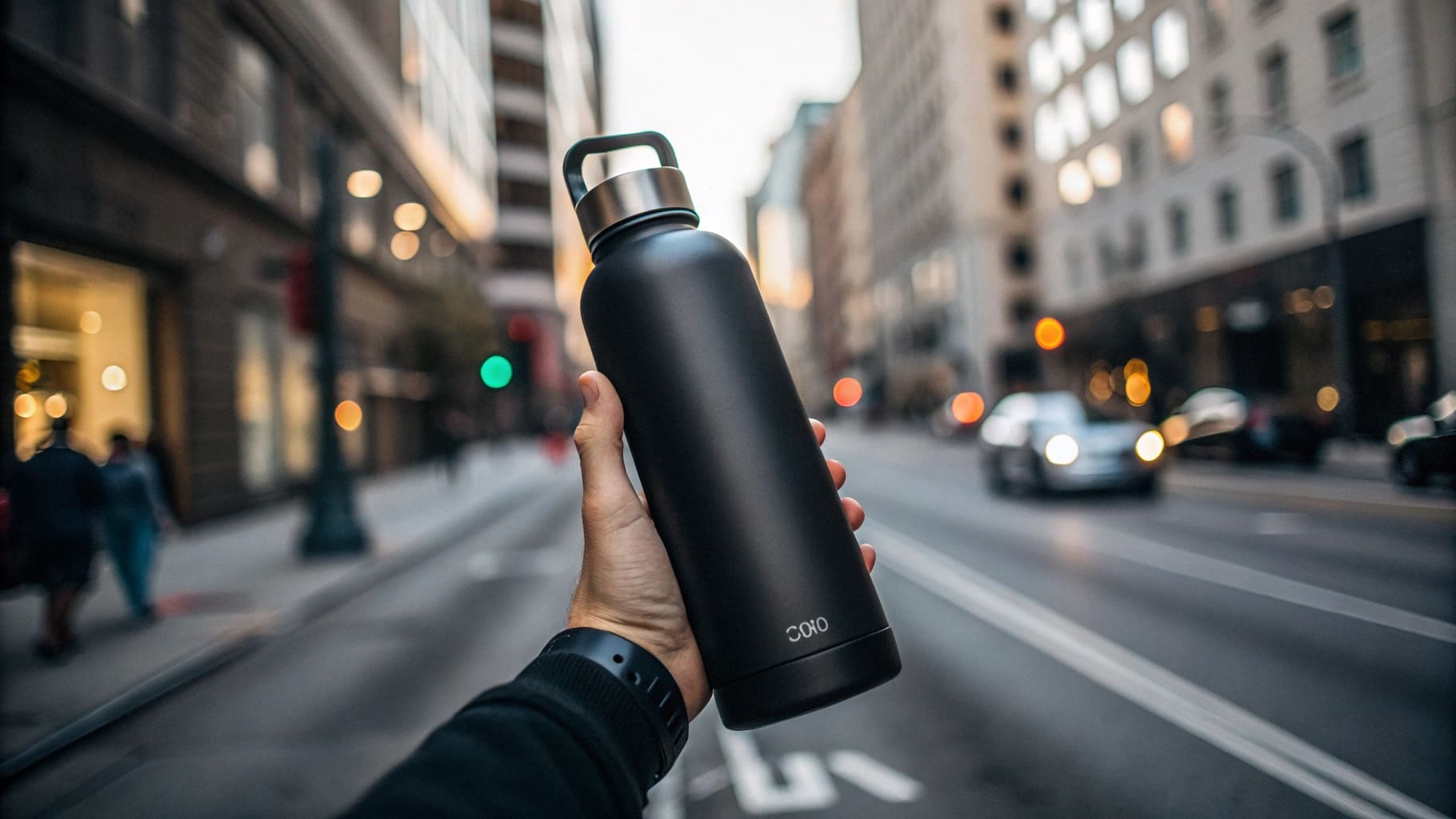Are you trying to choose the best water bottle material? It can be confusing. Understanding the facts helps you make a safe choice for daily hydration.
For everyday drinking, stainless steel is generally healthier than copper. Stainless steel is inert. This means it does not react with water or leach harmful substances. Copper, while having some antimicrobial properties, can leach into water, potentially leading to excessive copper intake.

You might be looking for clear answers. It is important to know the differences. Many people ask about copper's old traditions versus modern steel. Let's look deeper into these materials to help you understand. We will explore what makes each one unique for holding your drinking water.
Is copper better than stainless steel for drinking water?
Do you hear good things about copper but worry about its safety? Making the wrong choice can affect your health or your business. Let's compare them directly.
For daily drinking, food-grade stainless steel is usually better and safer. Copper can fight germs. But it also risks leaching metal into your water. Stainless steel is more reliable for everyday use because it doesn't do this.

Copper's Traditional Claims vs. Modern Science
Many people know copper from old traditions, like Ayurveda. These traditions say copper vessels are good for health. It is true that copper surfaces can kill bacteria and viruses. This is its antimicrobial property. I have seen many clients interested in this.
However, for drinking water daily, the main worry is copper leaching. "Leaching" means tiny amounts of copper can dissolve into the water stored in the bottle. Our bodies need a very small amount of copper to be healthy. But too much copper can be harmful. So, while the germ-killing idea is attractive, the risk of getting too much copper is a real concern for everyday use. We at Icobottle always advise caution here.
Stainless Steel's Inert Nature
Stainless steel, especially food-grade types like 304 (also called 18/8), is different. The word "inert" means it doesn't react chemically with the things it touches. When you put water in a stainless steel bottle, the steel doesn't change the water. It doesn't add any taste or chemicals.
This is a big reason why I recommend stainless steel to my clients, like Mark Shenng who looks for quality. It ensures the water stays pure. There's no risk of harmful substances leaching into the drink. This makes stainless steel very safe for consistent, daily hydration. For businesses like yours and mine, this means reliable product safety. It builds trust with customers.
Can I drink copper water daily?
Are you thinking of using a copper bottle every day for its health benefits? Daily use might turn a good idea into a health problem. Let's check if it's safe.
Drinking water from a copper bottle every day is generally not a good idea. The risk of copper leaching and causing copper toxicity is too high for daily use. It is better to use copper vessels only sometimes, if at all.

Understanding Copper Leaching and Intake Limits
Our bodies need copper. It is an essential trace mineral. But we only need it in very small amounts. Health organizations have guidelines for how much copper is safe in drinking water. If too much copper leaches from the bottle into the water, you might consume more than is safe.
Several things can affect how much copper leaches. The pH level of the water matters. How long the water sits in the bottle also matters. If you drink too much copper, you might feel sick. Symptoms can include nausea, vomiting, or stomach pain. Over a long time, too much copper can cause more serious health issues. As a supplier, I always think about these long-term safety points for my customers.
The Risks Outweigh Perceived Daily Benefits
Copper does have those antimicrobial properties we talked about. It can kill germs on its surface. But this benefit does not remove the risk of copper leaching if you use it every day. For daily hydration, safety comes first.
I remember a few years ago, a new client was very interested in copper-lined bottles for his startup. He was like Mark, keen on quality but also exploring new trends. We discussed the science. I explained the potential for leaching, especially with different water types across regions. The lack of clear, long-term safety data for daily use was a key point. He realized that promoting daily copper water use could be risky for his brand and his customers. He decided to go with our proven 304 stainless steel bottles. It’s about protecting your business by protecting your customers.
What is the best metal for drinking water?
Are you feeling lost with all the metal choices for drinkware? Picking the wrong one can affect health, taste, and even your business. Let's find the best metal for safe, everyday water.
Food-grade stainless steel, like 304 or 18/8, is widely seen as the best metal for drinking water. It is strong, does not react with water, does not leach chemicals, and keeps the water's taste pure.

Why Stainless Steel Reigns Supreme
When I talk to procurement officers or startup bosses, I always highlight why stainless steel is the top choice. It's not just about my business, Icobottle; it's about providing the best, safest product.
First, Safety. Food-grade stainless steel is inert. This means it doesn't release harmful chemicals like BPA or phthalates into your water. There's no worry about metal leaching.
Second, Durability. Stainless steel is very strong. It resists rust, corrosion, and can handle bumps and drops. A good stainless steel bottle can last for many years. This is a big plus for quality-conscious buyers like Mark.
Third, Taste Purity. Stainless steel doesn't give your water a metallic taste. The water tastes fresh and clean, just as it should.
Fourth, Hygiene. It's easy to clean and non-porous, meaning bacteria have fewer places to hide.
Finally, for businesses, it's great for Customization. We can easily add custom logos and colors, which is a key feature of our products at Icobottle.
Comparing with Other Metals
It's helpful to see how stainless steel stacks up against other common metals used for drinkware.
| Feature | Stainless Steel (304/18/8) | Copper | Aluminum (often with liner) |
|---|---|---|---|
| Inertness | High | Low (reactive) | Liner dependent |
| Leaching Risk | Very Low | High | Liner dependent |
| Durability | High | Medium | Medium |
| Taste Impact | None | Can be metallic | Liner dependent |
| Daily Use Safety | Excellent | Not Recommended | Good (if liner is safe) |
| Cost | Moderate | Moderate to High | Low to Moderate |
Aluminum bottles often need a plastic liner. This liner can sometimes contain BPA or degrade over time. Aluminum itself can react with acidic drinks if the liner is compromised. Copper has the leaching concerns we've discussed. Titanium is an excellent, safe material, but it's usually much more expensive. This makes stainless steel the best overall value for safety, durability, and performance.
Conclusion
For daily hydration, stainless steel is safer and more reliable than copper. It gives peace of mind to both consumers and B2B buyers like you.

